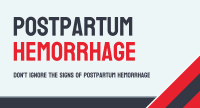Genomic science has crossed the horizon of health care into our everyday lives, transforming our understanding of health and illness. The era of personalized genomic health care has arrived. Genomic discoveries have made possible enhanced clinical capabilities to predict susceptibility to common diseases, including cancer, diabetes, and cardiovascular disease. Hundreds of genetic tests are available, which can identify individuals who carry gene mutations associated with increased risk of developing common diseases. This information gives healthcare providers the ability to provide highly personalized health care tailored to an individual’s genomic make-up.
Current genomic science is much more complicated than the physical characteristics of pea plants described by Gregor Mendel nearly 150 years ago. Nurses can no longer wait to understand this science, which now has direct healthcare applications. Patients and families look to nurses for understandable, comprehensive, and accurate information on the application of genomic science to their care.
Increased availability of clinical genetic testing, including genetic tests directly available to the public via the Internet, can result in extensive information about an individual’s risk for numerous health conditions and how likely they are to respond to various drugs and other treatments. Healthcare providers are expected to use this information to provide competent genomic care. However, nurses and other healthcare providers often lack the educational preparation to fully understand the complexity of genetic testing, interpretation of results, management of individuals with a genetic mutation, and the application of genomic information to clinical practice.
Application of genomics to clinical care: Case examples
Nurses need to translate genomic science into effective, personalized health care. These case examples illustrate how genomic information can be used to provide accurate disease risk assessment to tailor prevention and risk-reduction strategies specific to a person’s level of risk.
A 46-year-old woman comes to the cancer center to receive chemotherapy for breast cancer. Her mother was diagnosed with breast cancer at age 38. Her 24-year-old daughter is with her; she asks the nurse if she is at risk for breast cancer because of her family history and what she should do about her risk. The nurse refers the daughter to a genetics specialist for cancer risk assessment because of a family history of early-onset breast cancer.
A 29-year-old female of Ashkenazi Jewish (AJ) ancestry presents for her annual gynecologic examination. She and her husband gave each other online genetic testing as a fun birthday present; she inadvertently learned that she carried one of the three founder mutations in BRCA1/2 associated with about a 65% risk of developing breast cancer and a 40% lifetime risk of developing ovarian cancer (www.cancer.gov/cancertopics/pdq/genetics/breast-and-ovarian/HealthProfessional/page2). She tells the nurse about her test results and wants to understand her options for management. The nurse understands that AJ ancestry is associated with a higher risk of carrying a BRCA mutation, and refers her to a genetics specialist for consultation.
A 39-year-old woman has an appointment with her nurse practitioner (NP) for evaluation of rectal bleeding. The nurse takes a three-generation family history and learns that the woman’s paternal cousin was diagnosed with colorectal cancer at age 35 and her father was diagnosed with colorectal cancer at age 50. The patient asks about genetic testing. The NP orders a colonoscopy and refers the patient for genetic counseling.
Development of genomic nursing competencies for all nurses
The American Nurses Association (ANA) has been instrumental in supporting efforts to develop and disseminate genomic nursing competencies for all levels of nursing practice. Historically, ANA has also supported the International Society of Nurses in Genetics (ISONG) in its efforts to develop genomics nursing as a specialty practice.
Genomic nursing competencies applicable to all nurses were established by consensus and published on the ANA website in 2006. A second edition was published in 2009 with the addition of outcome indicators and strategies for incorporating these competencies into nursing curricula. These competencies were developed by an independent panel of nursing leaders from a variety of practice settings for the purpose of establishing a foundation for educating the nursing profession to provide competent genomic nursing care. They have been endorsed by about 50 different nursing, academic, and healthcare organizations and have significantly affected recent efforts to increase genomics content in nursing programs. These competencies, along with outcome indicators and genomic resources for each competency, are also published on the Genetics/Genomics Competency Center (G2C2) website (www.G-2-C-2.org).
It soon became evident that specific competencies for nurses educated at the graduate level were needed, resulting in the document Essential Genetics and Genomics Competencies for Nurses With Graduate Degrees, which build upon the competencies for all nurses discussed above. They were established by consensus in September 2011 and published on the ANA website in 2012. These competencies are based on published genetic/genomic competencies for similar graduate-level health professionals, published literature concerning what nurses prepared at the graduate level need to know about genomics, genomic content in advanced practice registered nurse (APRN) credentialing exam materials, and review and analysis by a diverse group of graduate-level nursing leaders and genetics experts using the consensus process. The primary purpose of these competencies is to establish essential genomic competencies for individuals prepared at the graduate level in nursing and to improve the genomic competence of nurses in advanced clinical, educational, academic, and research leadership roles. Twenty nursing organizations have endorsed these competencies. Long-term plans include dissemination through the G2C2 website.
Genomic nursing resources
A variety of excellent online genomic resources is available to nurses free of charge. The ISONG website includes a rich array of clinical, educational, and research genomic resources (www.isong.org). ISONG also hosts an annual conference. Another valuable resource is Genetics Home Reference, sponsored by the National Library of Medicine ( http://ghr.nlm.nih.gov), which includes information on genetic conditions and basic information about gene mutations, inheritance, genetic testing, and definitions. GeneTests (www.ncbi.nlm.nih.gov/sites/GeneTests/?db=GeneTests) has peer-reviewed disease descriptions and a searchable database to locate genetics professionals worldwide.
Providing care in the genomic era
Personalized care is now a reality affording the ability to predict disease risk and tailor healthcare interventions based on an individual’s genomic make-up, especially in the area of pharmocogenomics. Patients and families may be excited by the possibilities the science of genomics presents, but overwhelmed by the volume and technical nature of genomic information. Nurses are expected to assist patients and families to assimilate this information and make good choices about care, as well as identify when to refer patients and families for further evaluation. All nurses must have the fundamental genomic knowledge and skills necessary to provide competent genomic health care, and APRNs need to be prepared to assume clinical and leadership roles in healthcare systems in translating genomic advances into effective healthcare.
A number of efforts are underway to address the challenges nurses and other healthcare providers face in providing competent genomic health care in the context of unprecedented access to information, technology, and global communication. Development of essential genomic nursing competencies has resulted in increased genomic content in academic programs. These and other efforts will help nurses translate genomic advances into effective patient care as nurses face the challenges of health care in the genomic era.
Selected references
Consensus Panel on Genetic/Genomic Nursing Competencies. Essentials of Genetic and Genomic Nursing: Competencies, Curricula Guidelines, and Outcome Indicators. 2nd ed. Silver Spring, MD: American Nurses Association. www.genome.gov/Pages/Careers/HealthProfessionalEducation/geneticscompetency.pdf. Published 2009. Accessed October 3, 2012.
Greco KE, Mahon SM. Genetics nursing practice enters a new era with credentialing. Internet J Adv Nurs Pract. 2003;5(2):99. doi:10.5580/1450.
Greco KE, Tinley S, Seibert D. Essential Genetic and Genomic Competencies for Nurses with Graduate Degrees. Silver Spring, MD: American Nurses Association and International Society of Nurses in Genetics. http://www.nursingworld.org/MainMenuCategories/EthicsStandards/Resources/Genetics-1/Essential-Genetic-and-Genomic-Competencies-for-Nurses-With-Graduate-Degrees.pdf. Published 2012. Accessed October 3, 2012.
Karen Greco is an adjunct associate professor at the College of Nursing at the University of Arizona in Tucson. Suzanne Mahon is an assistant professor in the division of hematology/oncology in the Department of Internal Medicine at St. Louis University in St. Louis, Missouri.


















